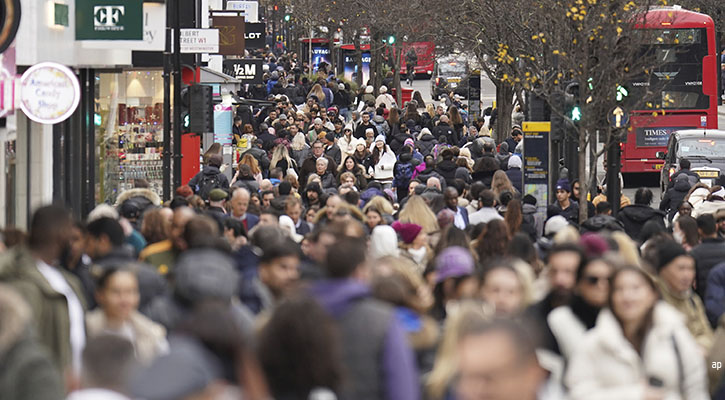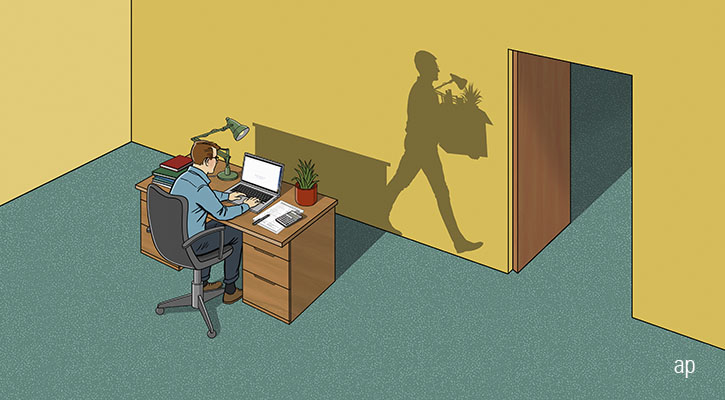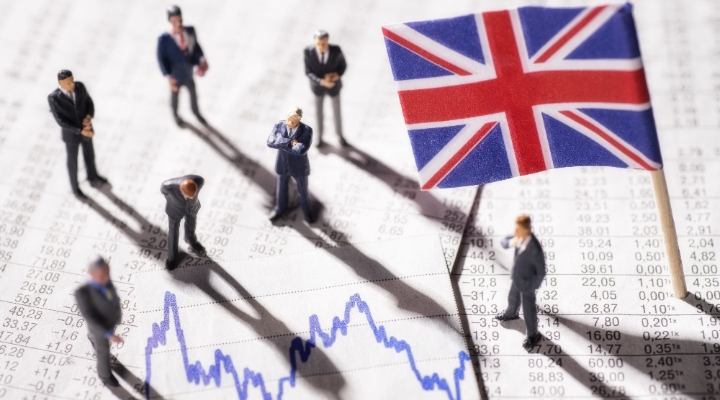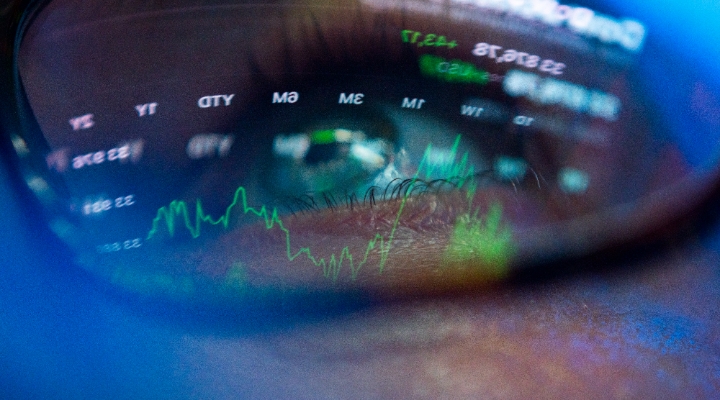
UK retail sales are estimated to have fallen in December, according to the latest data released by the Office for National Statistics on Friday.
Retail sales volumes are estimated to have fallen by 1.0% in December from November. Retail sales fell by 0.5% in November from October, revised from a monthly decline of 0.4%.
Markets had expected retail sales volumes to rise by 0.5% monthly in December, according to FXStreet.
Against the year prior, retail sales fell by 5.8% in December. In November, retail sales had fallen by 5.9% against the previous year.
The ONS said December's sales volumes were 1.7% below their pre-pandemic level in February 2020.
Excluding fuel, retail sales fell 1.1% month-on-month in December. Against the previous year, retail sales excluding fuel fell by 6.1%.
Gloomy Mood
UK consumer confidence has fallen again to a near-historic low amid inflation woes and growing concern about another jump in energy bills.
GfK's long-running Consumer Confidence Index dropped three points in January to minus 45 after a short-lived and weak rally in the last quarter.
Confidence in the general economy for the coming 12 months fell one point to minus 54 and remains 22 points lower than last January, while the forecast for personal finances increased to minus 27 but is still 25 points lower than this time last year.
The major purchase index, an indicator of confidence in buying big ticket items, fell six points to minus 40 – some 30 points lower than last January.
The pessimistic mood comes as the rate of inflation dipped for the second month in a row in December, to 10.5%, offering more evidence the peak of the cost-of-living crisis has passed but offering scant relief for households and businesses who are still facing eye-watering prices.
Food price inflation hit yet another 45-year high, at 16.8%, in December, while the government will scale back its energy support package from April, capping average household gas and electricity bills at GBP3,000 a year, up from GBP2,500 currently.
GfK client strategy director Joe Staton said: "Consumers have a New Year hangover but it's of the economic kind, with high levels of pessimism over the state of the wider economy.
"And unlike a conventional hangover, this one won't vanish quickly. The only glimmer of hope in the results is a slight uptick in the outlook for our personal financial situation, but this is of little comfort because it is still 25 points lower than this time last year.
"This month's six-point decline in the major purchase index does not augur well because consumer spending is a driving force of our economy and future growth.
"With inflation continuing to swallow up pay rises, and the prospect of some shocking energy bills landing soon, the forecast for consumer confidence this year is not looking good. One thing we can be sure of is that 2023 promises to be a bumpy ride."
Linda Ellett, UK head of retail and leisure consumer markets at KPMG, said: "Higher essential costs, a fear of further increases yet to come – particularly the April energy price cap rise – are weighing on consumer confidence, whilst increased spending on credit at Christmas is also weighing on many minds.
"Whilst appetite and ability for big-ticket spending remains limited in this climate, there are still consumers planning on spending this year on the likes of holidays, home improvements and appliances.
"The economy will certainly need that spend to come to fruition over the coming months."





























